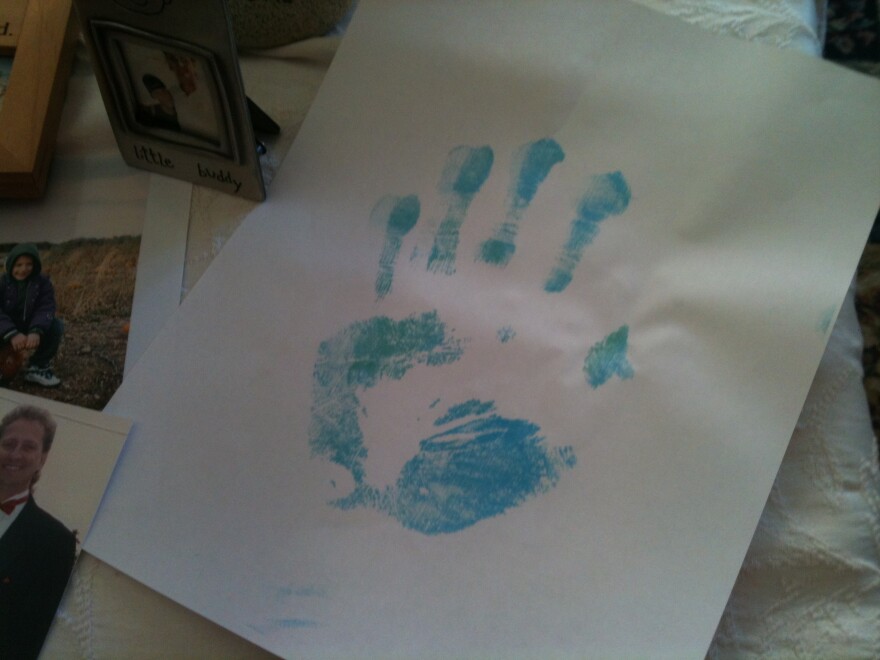There has been a dramatic rise in heroin use and fatal overdoses in Wisconsin. Last year, nearly 200 residents died using the illegal drug. It’s shown up in more than two-thirds of the state’s counties.
Heroin grips lives, because it’s highly addictive. Of those who try it, 75 percent go back for more.
“It’s like euphoria. All your cares are gone. Mentally, physically, you just feel great,” says 28-year-old Kyle Barney of Milwaukee.
He says he’s clean now. But he was hooked for five years, always trying to recapture the initial feeling.
“It’s really hard to get back to the same point. And that’s where a lot of people overdose, is trying to get that same high that you had the first time. And you just end up using too much, and before you know it, everything slows down so much, your respiratory system, and it’s over with,” Barney says.
Barney says heroin became his “entire world.” He dropped family and friends. He turned to crime to support his habit and wound up in jail.
Another Milwaukee man says he tried to keep up appearances of living a “normal” life. Matt is 29 years old. He says for years he took heroin throughout the day, while earning his college degree and working.
“Even if you do have a job, just being a heroin addict itself is a full-time job. Being able to keep up the money, you have to act like a different person around certain people because they have no idea, and you have to lie to cover another lie, and it sucks,” Matt says.

Matt says he’s trying hard to kick the drug, but the withdrawal symptoms are wretched.
“After you do it a few times, your body, like, needs it to function. You will get so sick and ill. It’s like the flu times 100,” Matt says.
Matt admits he used heroin just a couple days before we talked, to ease the withdrawal symptoms.
Many of those addicted lose their battle with the drug. Heroin cuts short their lives, and devastates family and friends. Some parents shared their stories of losing children to heroin overdoses, in a public service campaign the Wisconsin Department of Justice released this fall.
“I can’t imagine something that’s so addictive that even though you’ve watched your brother die that you’re still willing to do it again. But that’s how terrible this drug is, that’s how evil it is…”
“If you’ve got a daughter that’s lying to you that’s not a liar -- big red flag. Something’s going on, something’s not right…”
“He wrote this in the last three months of his life: ‘My eulogy would say that I was a caring, intelligent, humorous, strong-willed person, who just couldn’t fight the grip of addiction…’”
Julie Berg of Menomonee Falls is the mom reading the eulogy her son wrote for himself. Berg says Tyler was 25, and had been in and out of rehab and jail for years. But he appeared to be turning his life around when he tried heroin one more time, in February of last year.
“It’s not so much the addicts that keep using. It’s the addicts that are trying to get better, and they’re clean for an extended amount of time, and they can’t handle what they had been using,” Berg says.
The same grief cloaks Gerry Gabor and Sandy Wolf-Gabor of Wauwatosa. Their grandson Brandon died of an overdose three months ago. Like Julie Berg’s son Tyler, the Gabors say Brandon battled heroin for years, and had been in trouble with the law. Yet it looked like he was pulling things together.
“We thought he was getting better, and he was. He looked good, he sounded good. He had the job, he had the girlfriend, he had the little apartment. Those are earmarks of success,” Sandy Wolf-Gabor says.
The Gabors spread photos of Brandon on their dining room table. All of them reflect a gregarious kid with a big smile. In most, he’s tucked under his grandpa’s arm, getting taller, over the years.
“Obviously at a Brewer game, sledding at Currie Park. This is one where we were talking to each other and Sandy was taking a picture, and I was telling him, ‘OK, at the count of three, turn towards grandma and stick your tongue out,’ so that was that picture. And this was obviously a Halloween carving thing, and then the birthday party we had for him,” Gerry Gabor says.
Brandon was 26 when heroin took his life.
“In an instant, everything changed. In an instant. Our whole life now will be defined by before Brandon died and after Brandon died,” Sandy Wolf-Gabor says.
As Gerry Gabor grieves and adjusts to life without Brandon, he says he’ll probably get involved in efforts to stop the spread of heroin, as a way to honor his grandson.








